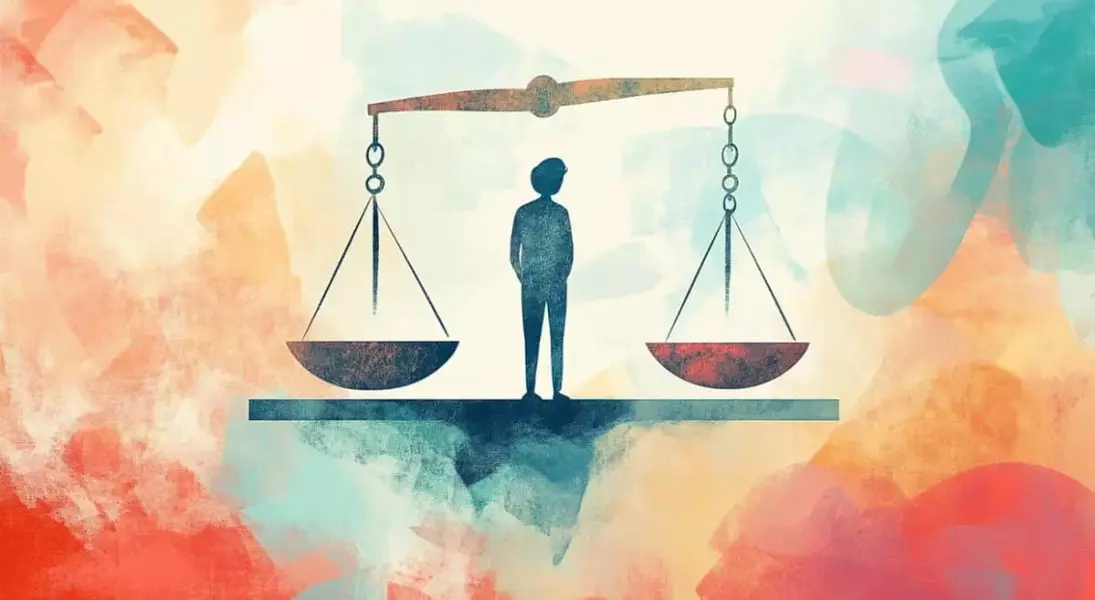
Revolutionize Your Perspective: Understanding the Science Behind Self-Belief
This groundbreaking study reveals critical insights into the mechanisms driving distorted self-perception among those dealing with mental health challenges. It offers hope for targeted interventions that can reshape lives by recalibrating how we interpret our successes and failures.
The Role of Metacognition in Shaping Self-Perception
In today's fast-paced world, understanding the intricate workings of metacognition has become essential for addressing mental health issues like anxiety and depression. The research conducted at UCL delves deep into how individuals process their experiences, particularly focusing on moments of perceived weakness versus strength. For instance, consider someone who excels at completing complex tasks but fixates solely on minor errors made during execution. This tendency skews their overall perception of capability, creating a cycle of negativity that is hard to break.
To illustrate this further, imagine an employee consistently praised for delivering high-quality reports yet remains convinced they are underperforming due to occasional typos. Such scenarios highlight the disconnect between actual achievement and internal evaluation. Researchers discovered that participants showing stronger symptoms of anxiety or depression were more likely to dwell on instances where they felt less certain about their decisions, even when their objective outcomes matched or surpassed those without such symptoms.
Feedback Dynamics: A Universal Catalyst?
Positive reinforcement plays a crucial role in shaping everyone’s confidence levels, regardless of whether they suffer from anxiety or depression. However, the study uncovered nuances in how different groups respond internally to external validation. While all participants experienced boosts in morale following favorable reviews, those struggling mentally continued holding onto lingering doubts about their abilities.
An interesting example comes from observing gamers participating in competitive tournaments. Despite receiving similar scores as peers, some players remain skeptical about their talents because they recall specific matches where they faltered. This selective memory reinforces pre-existing insecurities rather than allowing them to embrace holistic improvements indicated by consistent feedback patterns over time. Understanding these dynamics opens doors for crafting personalized approaches aimed at helping individuals reframe past events constructively.
Redefining Success Through Strategic Interventions
Armed with newfound knowledge about cognitive biases affecting self-assessment, researchers advocate for innovative methods designed to counteract detrimental thought processes. One promising avenue involves encouraging individuals to adopt broader perspectives when analyzing personal achievements. Instead of isolating single incidents as definitive measures of worthiness, adopting cumulative viewpoints encourages recognition of long-term progress.
For example, educators might implement systems tracking student advancements across semesters rather than emphasizing isolated test results. Similarly, workplaces could introduce mentorship programs pairing employees with seasoned professionals capable of offering constructive critiques alongside celebrating milestones achieved together. These strategies not only enhance individual growth trajectories but also foster supportive environments conducive to healing psychological wounds caused by chronic self-doubt.
Implications Beyond Mental Health: Bridging Gaps Between Competence & Confidence
Findings linking persistent low self-belief to conditions like imposter syndrome carry implications far beyond traditional therapy settings. They challenge societal norms dictating what constitutes success while underscoring the importance of nurturing authentic confidence rooted in reality instead of illusionary standards set externally. Consider entrepreneurs launching startups amidst fierce competition; many face debilitating fears despite proven track records simply because they fail to acknowledge legitimate accomplishments amidst setbacks.
Addressing this gap requires concerted efforts combining scientific discoveries with practical applications tailored to diverse contexts. Educators, employers, healthcare providers—all must collaborate to dismantle barriers preventing individuals from fully embracing their potential. As Dr Katyal emphasizes, cultivating awareness around one's own limitations alongside strengths empowers people to integrate feedback meaningfully, thereby constructing resilient identities equipped to navigate life's inevitable uncertainties.
